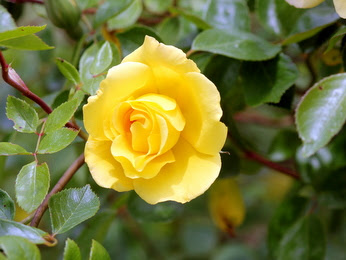 |
| Photo via Freestockphotos.com |
A few weeks ago, a good friend and I indulged in the
deliciously decadent simple pleasure of going to see Wonder Woman on a
Friday afternoon. Our intention was nothing more than being together and having
fun while most of the rest of the world was at work.
As we watched the movie, sharing popcorn and sipping from
our water bottles, something surprising happened. We both teared up.
Wha--?
We walked out of the theater, both a little stunned by how
entertaining and empowering the movie felt, and by our own reactions to it.
Since then, I’ve pondered my (our) teary response to the movie. What affected
us so much?
And then to my surprise, I found we were not alone in our
tears. Many, many women were being affected this way. I found the No Man’s Land
scene the most moving, but other women were moved to tears by the scenes of the
Amazons training or fighting on their home island, Themiscyra. Each story I’ve
read about a woman crying during Wonder Woman has been a little
different, but mainly they’ve focused on the concept of representation—having a
role model up on screen who is unabashedly feminine and powerful.
The character of Diana Prince/Wonder Woman is not a damsel
in distress, a sidekick, an afterthought, or a love interest. She’s the main
event, and she is inspiring. She’s strong, brave, loving, and purposeful. She
doesn’t wait, she acts. She doesn’t waffle, she decides, and when she acts, she
does so in the service of others. That’s a pretty darn good role model, and one
that is larger than life. One I wish I’d had when I was growing up.
I’m not what I think of as brave, or even assertive. I grew up in a culture that didn’t encourage those qualities in
women, and I’m shy by nature. Even though I knew strong and capable women, they tended to stay in the
background, not lead the way. Would I have been a more courageous, outgoing
person with an example like Diana Prince to emulate? I don’t know, but I agree
with the woman who said, “I wish I could go back in time and watch it with
8-year-old me.” Sometimes you have to see the example—to be made aware of the
possibility—before you can emulate it.
Now I realize this is all in the context of a fictional
superhero movie. I realize our decisions and actions in real life can be more
emotionally fraught and tricky to navigate than No Man’s Land, especially when
we’re not Amazons equipped with magical shields. Even so, I’ve found myself
thinking of Diana more than once when I face problems in my day-to-day life. Would
Wonder Woman be fazed by the challenges of redesigning my blog, or by not
placing (again) in an essay contest? Somehow I doubt it.
So much to my surprise, I’m adding Wonder Woman to my list
of role models. I could do worse.
Do you have any unusual role models you look up to?


























.jpg)


